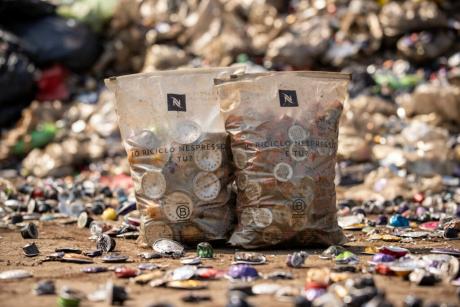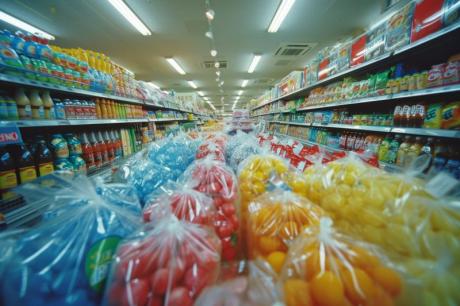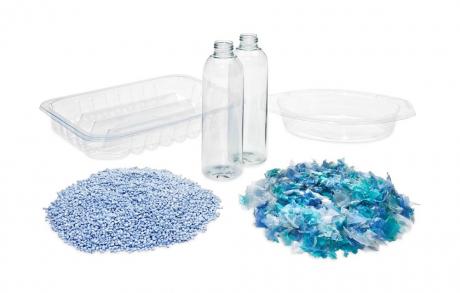A partnership agreement between Sacme and Aliplast has been signed to offer GDO chains the opportunity to transform their packaging film waste into bin bags for waste, which are then sold as private label products within the same chain that generated the waste. This represents a circular economy model with significant environmental impacts.
Beyond Recycling: The Second Life of LDPE Films
Every day, hundreds of tonnes of plastic packaging are turned into waste at logistics centres for Italian GDO chains. This mainly consists of shrink or stretch films made of low-density polyethylene (LDPE), most of which are then recycled. However, Sacme, a leader in the production of plastic shopping bags, sacks, and pouches, and Aliplast (Hera Group) now offer supermarket networks an even more circular alternative: transforming LDPE waste into products sold within the same stores, thus preventing waste production at the outset.
How the Agreement Works: From Waste to GDO-branded Bin Bags
The two companies have today signed an agreement that launches a circular partnership model for all GDO operators. The model is simple: Aliplast collects the waste film at distribution centres, which it transforms at its facilities into regenerated LDPE. Sacme then uses this regenerated LDPE to make waste bin bags containing at least 80% recycled material. These bags are then marketed with the private label of the partner GDO chain, supported by product traceability that ensures the recycled LDPE comes directly from the chain’s own waste.
A Conscious Consumer Choice with Measurable Environmental Impact
Thanks to this agreement, the partner GDO chain can establish a true closed-loop plastic cycle, enabling customers to make a conscious consumption choice by purchasing a branded product. This decision has a significant and easily measurable environmental impact, especially for sustainability reporting. In fact, every tonne of waste bags made from recycled film saves 2.456 tonnes of CO2 equivalent from entering the atmosphere. This value was calculated through a comparative LCA study between the production of 1 kg of LDPE film produced in 2022 at the Ospedaletto di Istriana (TV) facility and the equivalent made from virgin raw materials (data sourced from the Ecoinvent 3.9.1 database). The aforementioned study was conducted in accordance with the UNI EN ISO 14040:2021 and UNI EN ISO 14044:2021 standards. The difference in impact during the production of the raw material is equivalent to the difference in impact for the waste bags, assuming the production processes are the same in both cases.
Altissimo, CEO of Sacme: "A New Business Model Always Offers Great Opportunities"
The word environment must be filled with real and measurable content. This agreement provides the operators involved, and particularly the GDO chains, with the opportunity to offer products derived from a circular economy with a highly tangible positive environmental impact in terms of waste reduction and prevention of climate-altering emissions,
explained Stefano Altissimo, CEO of Sacme. "GDO chains can therefore further certify their environmental commitment, strengthening customer brand awareness through a genuinely sustainable branded product."
Petrone: "We, the Recyclers, Have a View of the End Consumer"
This agreement fully aligns with the industrial plan of the Hera Group, which identifies circular economy development as one of its key drivers, explained Michele Petrone, CEO of Aliplast. It also reinforces our position as a producer of secondary raw materials capable of seeing the end consumer, and thus of working with our industrial clients to create added-value, highly innovative solutions, as is the case with the GDO, but also in other sectors, including cosmetics and food.








